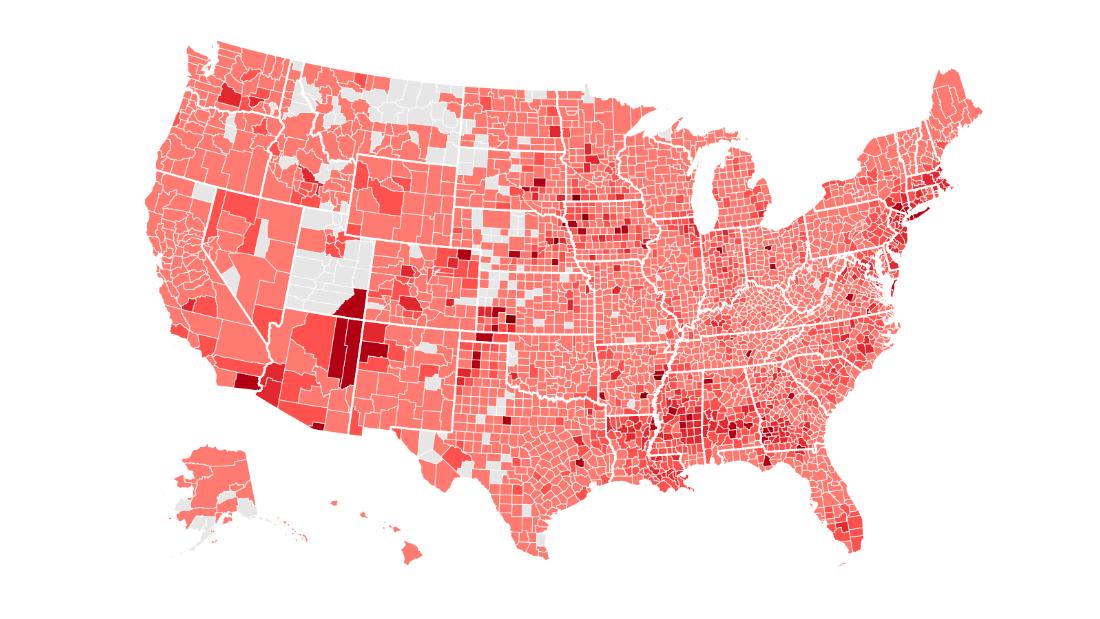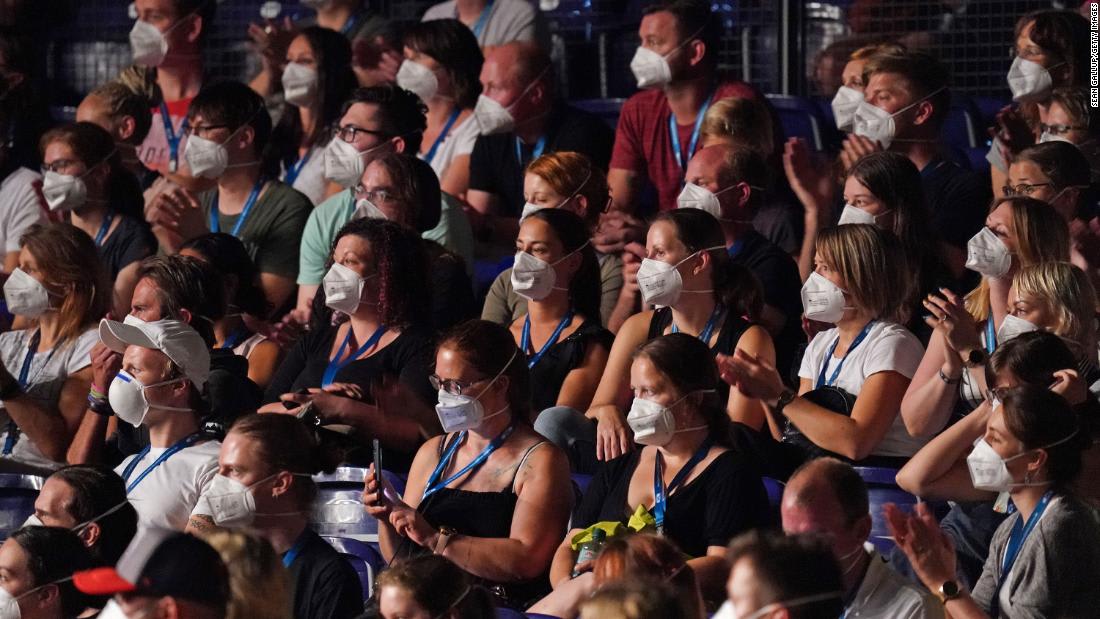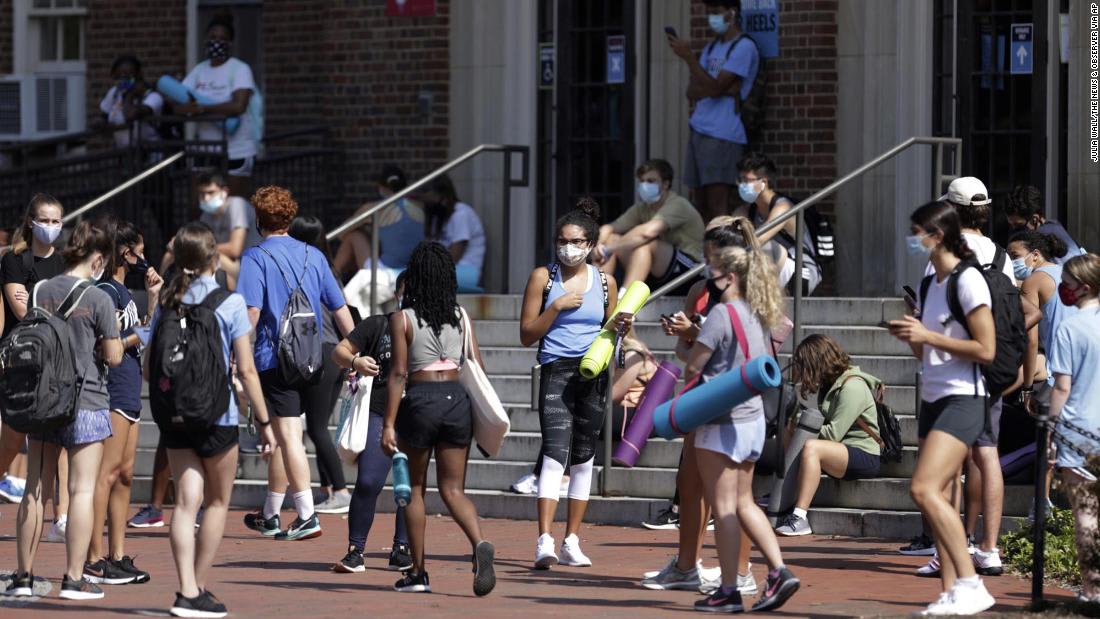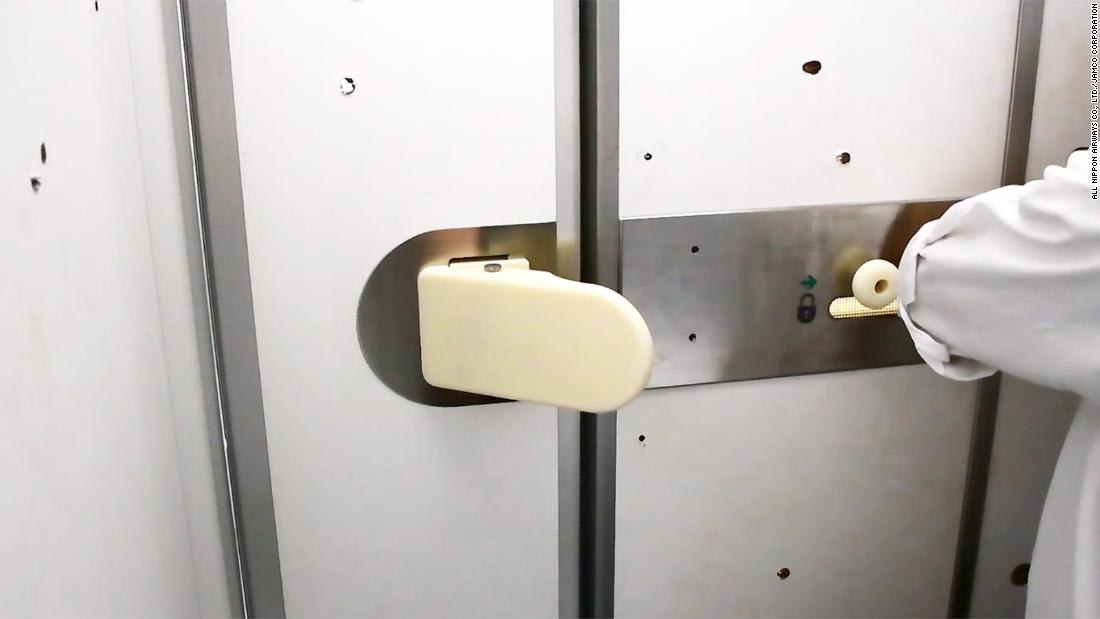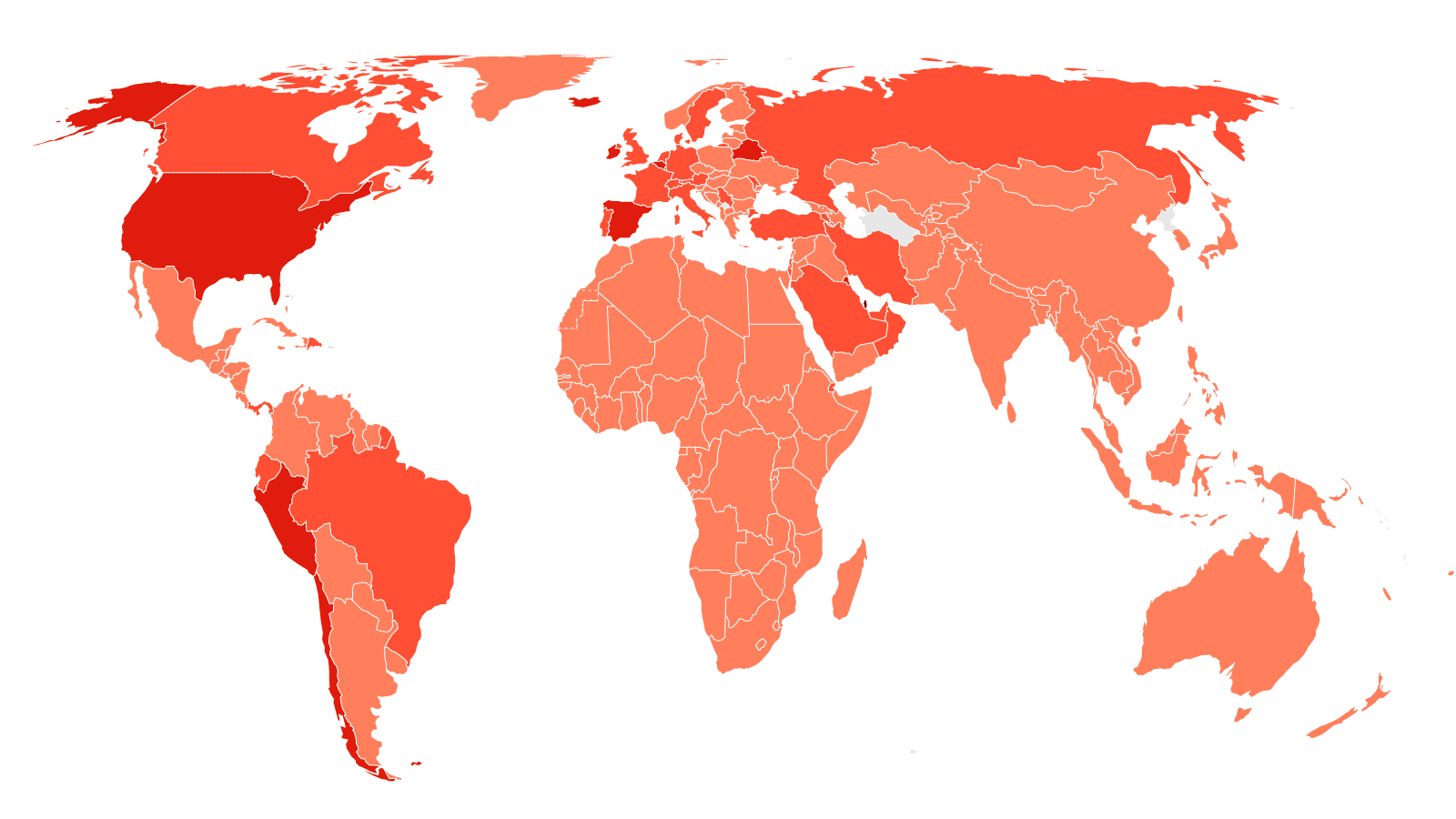Disaster looms for Boris Johnson as fall crises collide
From CNN's Luke McGee
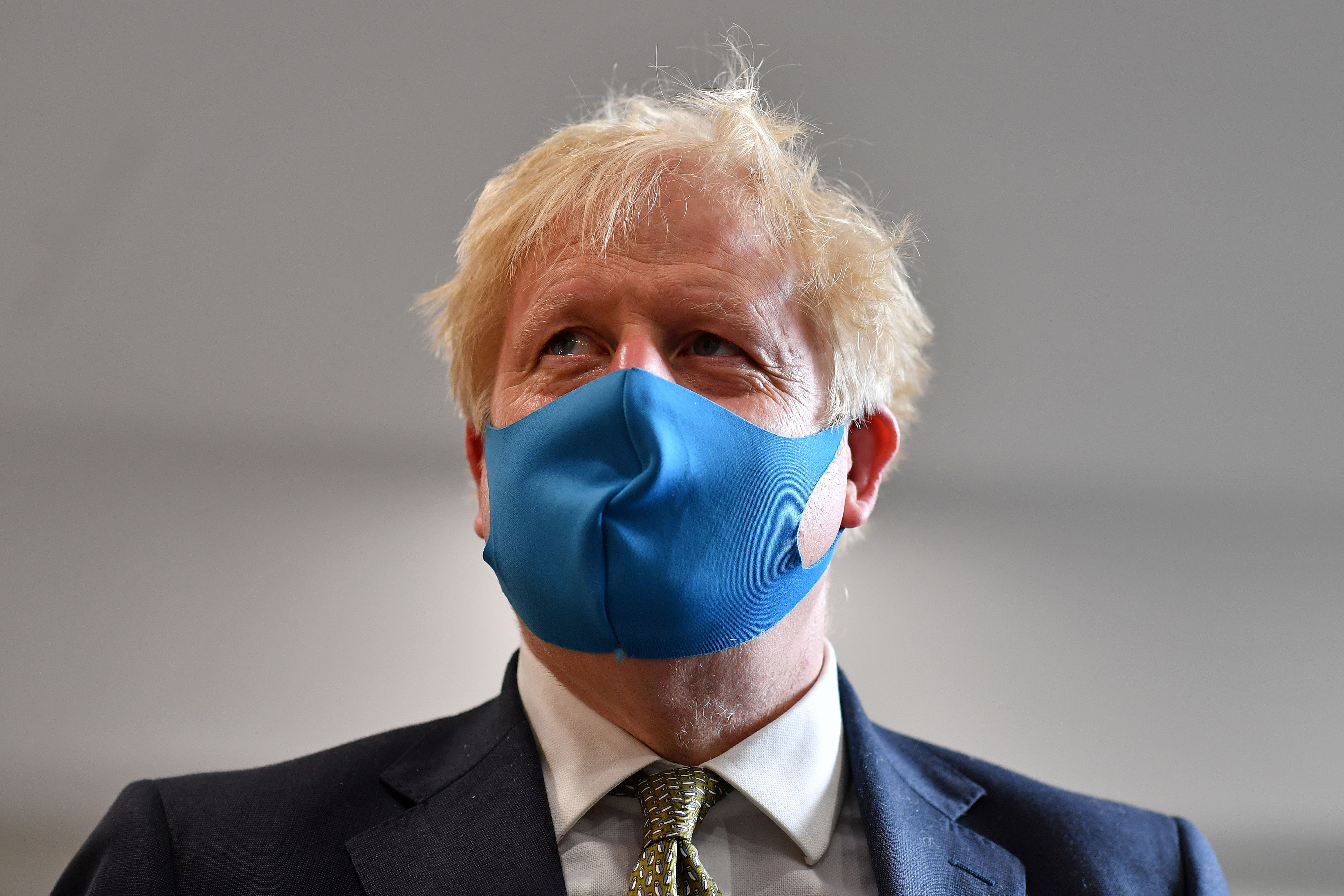 UK Prime Minister Boris Johnson visits the headquarters of the London Ambulance Service NHS Trust on July 13. Ben Stansall/WPA Pool/Getty Images
UK Prime Minister Boris Johnson visits the headquarters of the London Ambulance Service NHS Trust on July 13. Ben Stansall/WPA Pool/Getty ImagesEven by the standards of a world leader navigating a pandemic, Boris Johnson has had a tumultuous 2020. The UK's Prime Minister returns to work on Monday, having spent a week on vacation with his fiancée and baby in Scotland. In that time he'll have had the chance to reflect on his extraordinary year to date, in which he took his country out of the European Union, got divorced, got engaged, got Covid-19 so badly he was taken to intensive care, had a baby and endured months of criticism over his handling of coronavirus.
The main charge is that Johnson's government took too long to take the virus seriously, meaning it had an inadequate testing regime, locked down too late and obsessively tried to handle the crisis from London. The result is that the UK has suffered the most deaths in Europe and the fifth most in the world, according to Johns Hopkins University.
During the crisis, Johnson's government has suffered multiple embarrassing scandals -- from his chief adviser being accused of breaking lockdown rules to a messy U-turn after nationwide confusion over schoolchildren's exam results led to protests in London.
Unfortunately for Johnson, life is unlikely to be much easier this fall. After an eventful summer, UK lawmakers return to parliament on September 1, giving Johnson's opponents in the Labour Party -- newly invigorated under the leadership of Keir Starmer -- a forum to hold him to account as numerous crises run into each other between now and the end of the year.
South Korean President warns that country is facing a virus crisis worse than the first wave
From CNN's Jake Kwon in Seoul
 South Korea's President Moon Jae-in speaks at an event in Seoul on August 15. Chung Sung-Jun/Getty Images
South Korea's President Moon Jae-in speaks at an event in Seoul on August 15. Chung Sung-Jun/Getty ImagesSouth Korea's President Moon said that the country is facing a new virus crisis and that it is much more severe than dealing with the controversial church cluster in its first wave.
“We are facing a new crisis. It's a much more severe emergency than the Shincheonji situation in the early days of the Covid-19 crisis," said Moon.
"Seoul and the metropolitan area have become the centers of spread, and nowhere else in the country is safe."
If health officials were unable to curb the spread of the virus then the social distancing level will be raised to Alert Level 3 which would mean "daily life will be stopped, jobs will be collapsed and a huge economic blow should be endured," warned Moon.
"Even the medical system could collapse," the President said in a meeting with senior advisors in Seoul on Monday.
Moon said that the effort to stem the spread of the virus in South Korea is being hampered because "some in our society are challenging the nation's disease prevention system and blatantly obstructing or refusing to cooperate the health effort."
The latest outbreak in South Korea has been linked to churches in Seoul and the neighboring provinces. Members of religious groups have been criticized for withholding key information and obstructing public health authorities in their fight against the pandemic.
"We cannot tolerate individual transgressions such as non-cooperation in disease prevention or quarantine violation by refusing administrative orders. The damage to people is already too great. It has hurt the lives and health of many people, stopped their daily lives, and hurt the economy and employment," Moon told his senior advisors.
US reports more than 34,000 new Covid-19 cases
Another 34,567 coronavirus infections were recorded in the United States on Sunday, according to Johns Hopkins University.
The total number of cases confirmed in the US now stands at 5,703,586.
JHU recorded 449 Covid-19-related deaths on Sunday. To date, at least 176,808 people have died in the US from the disease.
The totals include cases from all 50 states, the District of Columbia and other US territories, as well as repatriated cases.
CNN is tracking US coronavirus cases here:
Security guard infected with Covid-19 while working at quarantine hotel alleges lack of PPE
A security guard who was infected with Covid-19 while working at an Australian quarantine hotel told an inquiry today there was a shortage of personal protective equipment (PPE) for staff at one of the facilities.
The guard, identified as Security 16 for legal reasons, was engaged by a private security company to work at a series of different hotels, the inquiry into Victoria state's hotel quarantine system heard.
At one hotel, the guard alleged his supervisor told him there was a shortage of masks and gloves, so he should put his mask in his pocket when he went for a break and wear the same face covering on his return to work. The guard also alleged he was told to put the mask in his pocket out of the view of security cameras.
The guard told the inquiry he wasn't given extensive training on how to use his PPE, or initially warned that there were coronavirus patients staying at the hotel.
The guard said he eventually contracted the virus while working at the hotel.
The inquiry is ongoing.
Fresh outbreak: Victoria and its state capital Melbourne are in lockdown amid a major second wave of Covid-19 linked to quarantine hotels. To date, 18,330 people in total have been infected across the state.
Fans crowd into an indoor concert in experiment on how to return to normality
From CNN's Nadine Schmidt and Amy Woodyatt
Ever since the coronavirus pandemic shuttered clubs, bars and concert halls around the world, music fans have been dreaming of the day they can once again visit a busy, sweaty venue to enjoy a gig with friends.
With infection rates rising in many European countries, this dream could be far off for now. But some music fans in Leipzig, Germany, have been given the chance to rock for a day in the name of science -- with the help of some glowing hand sanitizer and electronic trackers.
Researchers in Leipzig staged a 1,500-person experimental indoor concert on Saturday to better understand how Covid-19 spreads at big, busy events, and how to prevent it.
At the gig, which featured a live performance from musician Tim Bendzko, fans were given respiratory face masks, fluorescent hand gel and electronic "contact trackers" -- small transmitters that determine the contact rates and contact distances of the individual experiment participants.
Using data from the contact trackers, scientists from The University of Halle will monitor the number of "critical contacts" had by each participant during specific times and locations, while the residue left by fluorescent hand gel will identify frequently touched surfaces. Researchers hope to use the data to find ways to bring big events, including sports, back safely.
Professor Michael Gekle, the dean of the university's medical faculty and a professor of physiology, said the experiment was being conducted to better prepare authorities on how to conduct events in the upcoming autumn and winter seasons.
"There is no zero risk if you want to have life. We want to give the politicians a tool in order to decide rationally whether to allow such an event or not. That means they have to have the tool to predict how many additional infected people such an event will produce."
Read the full story:
US universities halt in-person classes and begin campus monitoring after rising coronavirus cases
From CNN's Amir Vera
As US colleges and universities try to settle into the fall semester, coronavirus cases continue to rise leading some institutions to cancel in-person instruction and implement strict rules to control the virus.
Universities in at least 19 US states have reported outbreaks, despite health protocols on campus. Many outbreaks are tied to large group gatherings like parties, leading some schools to suspend students and organizations for breaking social distancing rules on and off campus.
The University of Notre Dame and the University of Alabama both have seen increases in Covid-19 cases on their campuses. Notre Dame has moved to online instruction, according to its website. Meanwhile, local and university police at the University of Alabama will partner to monitor bars, restaurants and off-campus housing to ensure the city's Covid-19 ordinances and university guidelines are followed, university President Stuart R. Bell said.
Read the full story:
Japanese airline testing hands-free bathroom doors
From CNN's Lilit Marcus
Even before the coronavirus pandemic ignited global conversations about hygiene, there was one part of an airplane that nobody wanted to touch -- the bathroom door.
That's why Japanese airline ANA is testing a new hands-free bathroom door that passengers can open with their elbow or forearm.
One of the challenges of designing anything for an airplane is the lack of space. Lavatory doors open inward (less aisle blockage) or have small, flat handles instead of doorknobs.
But what you'll see on ANA's prototype is something that is hygienic but also conserves space: The familiar silver latch lavatory door handle now has a spring attached to it so that you can open it by pressing in instead of by pulling out.
Inside the bathroom, the locking mechanism looks pretty familiar, with a button you slide from one side to the other. A larger sized button can also be locked and unlocked with your elbow, meaning you can have a completely hands-free door both inside and out.
Currently, the door prototype is only available in ANA's lounge at Tokyo's Haneda Airport, where the company is gathering feedback on it through the end of August. If the design proves popular and easy to use, it could get more widespread use.
Read more:
Japan reports 746 new Covid-19 cases
From CNN's Junko Ogura in Tokyo and Eric Cheung in Hong Kong.
Japan recorded 746 new Covid-19 cases on Sunday, the country's Ministry of Health, Labor and Welfare said today.
The national total for coronavirus infections is now 63,219, according to the government. Five new deaths were reported on Sunday, bringing the total death toll to 1,194.
Among the new cases, 212 were reported in Tokyo. According to the city government, 51% of the new cases on Sunday were identified in patients aged in their 20s and 30s.
CNN is tracking worldwide coronavirus cases here:
New Zealand extends coronavirus restrictions as PM warns of more cases
From CNN's Isaac Yee
New Zealand’s Prime Minister Jacinda Ardern announced on Monday that level 3 coronavirus restrictions in Auckland will be extended until Sunday, August 30, after the country reported eight new cases on Monday.
“This is a contained cluster, but it is our biggest one, that means the tail will be long and the cases will keep coming for a while to come.”
Ardern said Auckland, the country’s most populous city, will move down to a modified alert level 2 setting after the extended period of level 3 restrictions ends on Sunday.
The rest of New Zealand will continue to remain at level 2 restrictions. The current restrictions with Auckland at level 3 and the rest of the country at level 2 were originally set to be lifted at midnight on Wednesday.
"Our ongoing goal is to maintain our elimination strategy while trying to reduce the impact on as many people and businesses as possible," Ardern said.
“In our fight against this virus, we have held some records, now the one we have to beat is around resurgence, and if any one country knows how to bounce back it is us."
Ardern also announced that use of masks or face coverings will become mandatory on public transport in alert levels 2 or above starting from next Monday.
What the restrictions mean: Under level 3 restrictions, public venues such as museums, cinemas, food courts, gyms, pools, playgrounds and markets will remain closed. People must stay within their immediate household bubble, but can expand this to connect with close family, bring in caregivers or support those who are isolated.
Under level 2 restrictions, no more than 100 people can gather in one place at a given time.

 5 years ago
611
5 years ago
611 